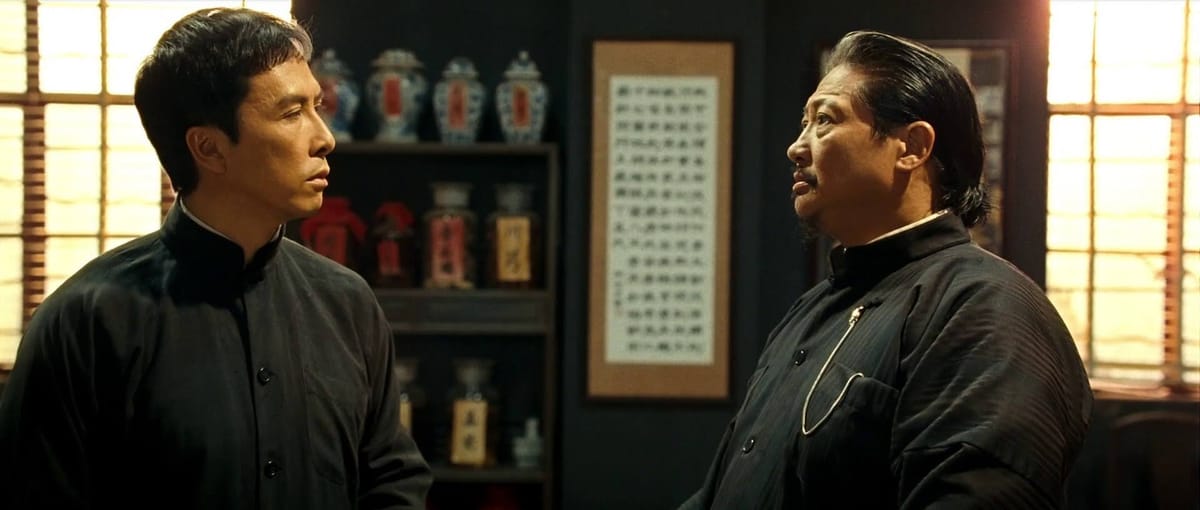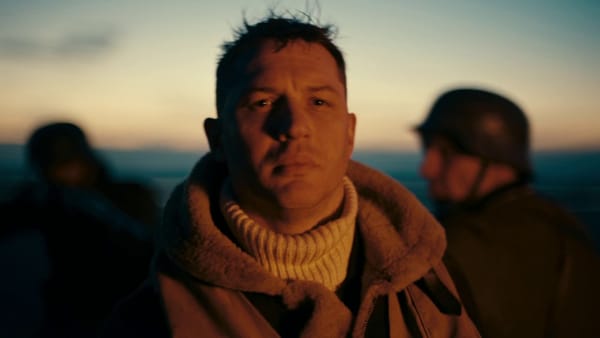A master in a city that doesn't want one.

IP MAN 2 takes the quiet moral certainty of the first film and drops it into a world where the rules have changed. Foshan’s occupation-era clarity — survive, resist, protect — gives way to Hong Kong’s postwar chaos, where martial arts must navigate not just cruelty, but capitalism, pride, and fractured communities. Wilson Yip widens the frame: the villain is no longer a foreign invader, but a system where honour, livelihood, and ego collide in cramped rooftops and makeshift dojos.
Donnie Yen plays Ip Man with the same gentle gravity, but there’s a new kind of exhaustion in him — the strain of a man trying to build something decent in a place that rewards noise over integrity. The early rooftop duel with Sammo Hung has the elegance of a ballet made of risk, two masters testing each other’s philosophy as much as their technique. It’s playful, competitive, and reverent all at once. In a film full of showdowns, this one is the most intimate.
What gives the sequel its weight is the tension between martial arts as community and martial arts as commerce. Ip Man wants to teach, to preserve Wing Chun with humility, but Hong Kong demands spectacle. And spectacle arrives in the form of the British boxer Twister — a sneering caricature of colonial arrogance who turns fighting into humiliation. Yip is not subtle here; the film becomes a commentary on Western exploitation of Eastern culture, a reminder that condescension can be its own kind of violence.
When the film shifts into Ip Man’s climactic fight with Twister, it echoes but does not repeat the 10-vs-1 from the first film. This isn’t revenge; it’s reclamation. Yen’s Wing Chun becomes a language the colonizers refuse to learn, a form of truth-telling in a ring built to silence it. The brutality of the match, the tension of the crowd, the rhythm of blows — it’s all shaped by the question of who gets to define worth in a city run by the powerful.
If the first film is about dignity under occupation, IP MAN 2 is about identity under pressure. It trades the stark pain of wartime for the messier challenge of rebuilding — a world where honour must fight corruption, tradition must negotiate survival, and a teacher must learn how to lead. It’s a sequel that evolves the story rather than repeating it, elevating Wing Chun from personal discipline to cultural legacy.




